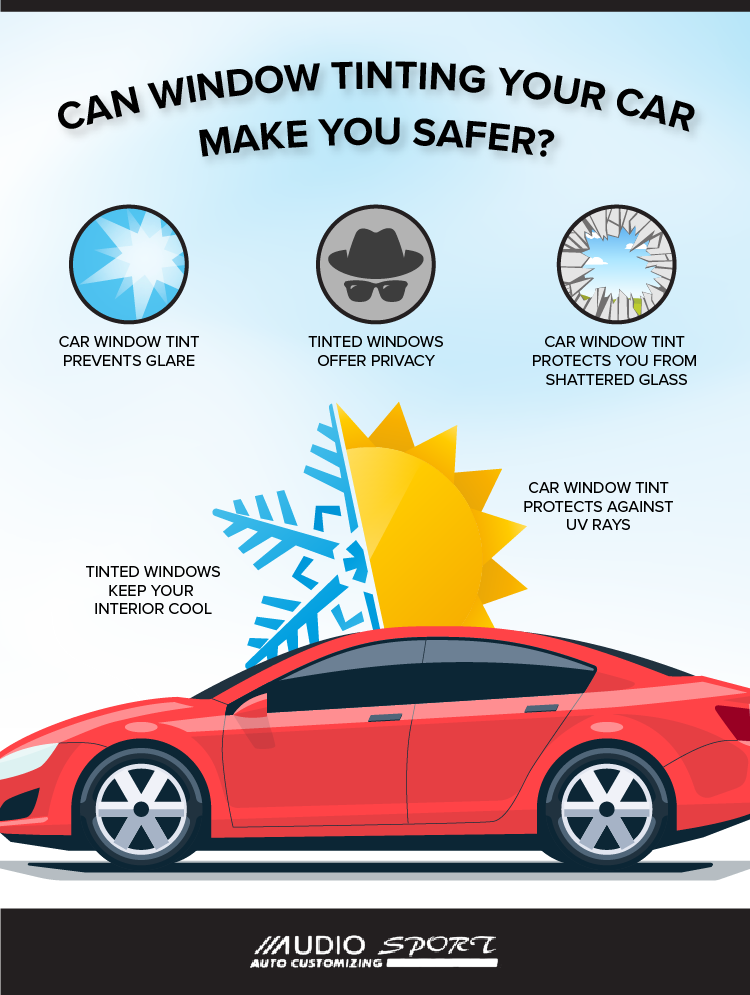Professional Window Tinting Services for Better Comfort and Style in Your Vehicle
Professional Window Tinting Services for Better Comfort and Style in Your Vehicle
Blog Article
Window Tinting Regulations: What You Required to Know Before Tinting Your Auto
Recognizing window tinting regulations is important for any kind of car owner thinking about tinting their automobile. Regulations differ considerably from state to state, establishing details limitations for Visible Light Transmission (VLT) percents, particularly for front-side home windows and windshields. Failure to follow these legislations can cause fines, the requirement to get rid of the color, and problems with insurance coverage. As you ponder improving your lorry's look and performance, it is crucial to understand not only the legal implications yet also the functional factors to consider that feature choosing the appropriate tint. What factors should you focus on in your decision-making process?
Value of Comprehending Color Laws
Comprehending window tinting laws is important for car owners to make certain conformity with state guidelines. These legislations dictate the allowable degrees of color darkness and reflectivity, which can considerably vary from one jurisdiction to one more. Falling short to stick to these regulations can lead to fines, necessary elimination of the tint, and possible issues during lorry examinations.
Additionally, understanding these laws aids vehicle proprietors make notified decisions regarding their tinting options. Various kinds of home window films offer different advantages, such as UV defense, heat denial, and glare decrease. Without expertise of the legal restrictions, lorry owners take the chance of choosing products that may ultimately lead to legal problems.
In addition, awareness of tinting laws cultivates a much safer driving setting. window tinting. Excessively dark tints can harm exposure, boosting the threat of mishaps, specifically during the night or in negative weather. Police also use these policies to guarantee roadway security, making compliance not just a personal duty but a legal responsibility
State-Specific Tint Laws
Each state in the U.S. has actually developed its own certain guidelines pertaining to home window tinting, mirroring a diverse selection of needs and requirements. These policies can vary considerably, impacting how automobile proprietors approach installation and compliance. Some states enable darker colors on rear home windows while imposing strict limitations on front-side windows.
Furthermore, laws commonly define permitted color materials and colors. Specific states forbid reflective tints completely, while others may enable them to a minimal level. Some jurisdictions mandate that vehicles with tinted home windows present a sticker label indicating conformity with state legislations, giving a clear identification for regulation enforcement.
Enforcement of these regulations likewise differs; some states are much more aggressive, performing random checks, while others rely upon grievances or visible infractions to initiate enforcement. Car owners need to realize that failing to abide with state-specific color laws can cause fines, obligatory removal of prohibited colors, or both.

Lawful Color Percentages
Figuring out the lawful tint portions is vital for lorry owners looking for to follow state policies. Each state has specific legislations regulating just how much light must travel through the home windows of an automobile, which is Source expressed as a percent called Visible Light Transmission (VLT) This percent differs substantially throughout states and can rely on the kind of home window-- front side, rear side, and windshield.
For circumstances, some states enable as little as 20% VLT on front side windows, while others may permit as much as 50%. Windscreen tinting is often more limited, with several territories allowing only a slim band of color on top of the windscreen. In comparison, back home windows usually have extra forgiving policies, with some states allowing darker colors.
It is necessary for lorry owners to acquaint themselves with their neighborhood regulations to avoid possible legal problems. This includes understanding exactly look at here how VLT is gauged, as it can vary based on the kind of home window film made use of. Remaining informed concerning these policies guarantees conformity and advertises secure driving conditions for both the vehicle proprietor and others when driving.
Consequences of Non-Compliance
Failing to stick to window tinting regulations can lead to considerable consequences for vehicle owners. Officers trained to determine unlawful color levels may provide penalties, which can differ by territory however commonly range from modest to substantial amounts.

Insurer may likewise enforce charges for non-compliance, as unlawful modifications can be deemed a breach of policy terms. This could affect coverage rates or lead to difficulties in claims if a case occurs.
Inevitably, the effects of non-compliance expand past immediate economic fines; they can affect a motorist's insurance policy rates, legal standing, and overall car value, emphasizing the relevance of sticking to neighborhood home window tinting policies.
Tips for Deciding On Tinting Options
Comprehending the implications of non-compliance highlights the relevance of making educated selections when choosing home window tinting choices. Familiarize yourself with your state's specific regulations pertaining to color darkness and reflectivity. Each state has unique policies that dictate the permissible limitations, so ensure you stay within these guidelines to avoid fines.
Second of all, think about the sort of tint product. Options include colored, metalized, and ceramic tints, each offering differing levels of warmth rejection, UV security, and toughness. Ceramic tints supply premium warm resistance without interfering with electronic devices, making them a prominent selection.
In addition, analyze your key objective for tinting. If you seek improved privacy, opt for darker tints; nevertheless, remember that this might influence exposure at night. On the other hand, if glare reduction and UV defense are your major concerns, lighter colors may be adequate.
Finally, seek advice from with a professional installer who is knowledgeable regarding local regulations and can recommend premium materials fit to your needs (window tinting). Taking these variables right into account will guarantee you make a well-informed choice, ultimately improving both your automobile's aesthetics and functionality
Final Thought
To conclude, experience with home window tinting regulations is essential before applying color to a lorry. Each state imposes particular guidelines concerning visible light transmission portions, particularly for front-side home windows and windscreens. Non-compliance can result in significant charges, including fines and necessary important source elimination of non-conforming tint. By recognizing lawful demands and choosing suitable tint products, lorry owners can achieve visual improvement while remaining compliant with relevant laws. Adherence to these guidelines guarantees both safety and complete satisfaction.
Recognizing home window tinting legislations is crucial for any type of lorry proprietor considering tinting their car.Understanding home window tinting regulations is crucial for car proprietors to make sure compliance with state guidelines. Some states enable darker colors on rear home windows while enforcing strict limitations on front-side windows.
In contrast, back windows generally have much more forgiving laws, with some states permitting darker tints. (window tinting)
In final thought, familiarity with home window tinting legislations is vital prior to using tint to a vehicle.
Report this page